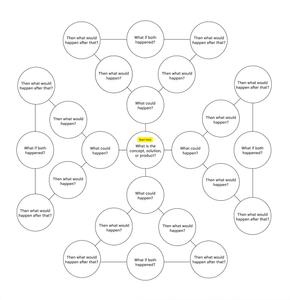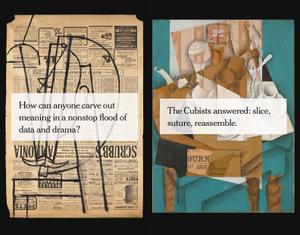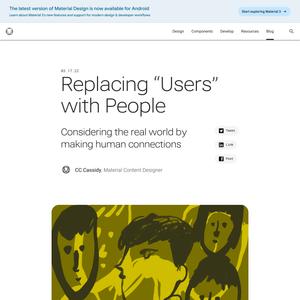Individuals
Inmates
Immigrants
Companies
Workers
Voters
Professionals
Amateurs
Hobbyists
Earth
Ecosystem
Local Community
Organizations
Organizers
Participants
The Future
The Present
Alternate timelines
Parents
Children
Generations
The Unemployed
Recent Graduates
Seniors
Militaries
Citizens
Refugees
Minorities
Majorities
Non-humans
Identify who is missing from your list of stakeholders. Why they are missing? Would it be better if they were included?
Which stakeholders are you already solving for with the decisions you’ve made so far on your project?
What values does your decision seem to lack?
What values does your decision demonstrate?
What could someone infer about your character, hearing that you made that decision?
Would you be happy with your decision if it appeared on the front page of the news?

We could have abundance all over the world if we used our technology wisely.

If resources and technologies applicable to creating everything in our societies—such as houses, cities, and transportation—were high enough in abundance there would be no reason to sell anything.
Likewise, if automation and machinery was so technologically advanced as to relieve human beings of labor, there would be no reason to have a job.
With these social aspects taken care of, there would be no reason to have money at all.
The ultimate question remains: Do we on Earth have enough resources and technological understanding to create a society of such abundance that everything we have now could be made available without a price tag and without the need for submissions through employment?
Yes, we do.
[William Morris believed] that good and simple ways of doing things had been replaced by cheaper, quicker ones, which impoverished and made ugly the lives of many while making millionaires of a very few.
[William Morris believed] that beauty was not a luxury, and that luxurious and unnecessary things were actually unbeautiful, since beauty was so closley allied to necessity and nature
It's so easy to think you don't matter all that much at the very moment when your moral duty as a self is most exposed.


Design as a personal, ideological, or political action is important and useful; design as an industry is not. Why train students to be part of an industry? Why not train them to be active parts of the world?
Poethics: a linking of aesthetic registers to the fluid and rapidly changing experiences of everyday life; making sense and new sense (sometimes taken for nonsense) [of] ongoing poetics of daily life; linking between the individual and public ethics in pursuit of the good life by tolerating ambiguity and delight in complex possibility.
I thought most of us didn’t know how truly good or truly bad we were, and most of us would never be sufficiently tested to find out.
People are at their least aware of others when demonstrating their own power over them.
There's a tendency toward an aggressive monoculture, where those components that are seen as "not useful" and which cannot be appropriated are the first to go.
In wealthier countries a mediocrity that hides the horrors of the rest of the world has prevailed.
Under capitalism, it is an unceasing battle to defend human life and dignity from the magnetism of the bottom line.
unhealthy peace vs healthy conflict:
avoiding conflict hurts those with the least amount of power the most
Priya Parker